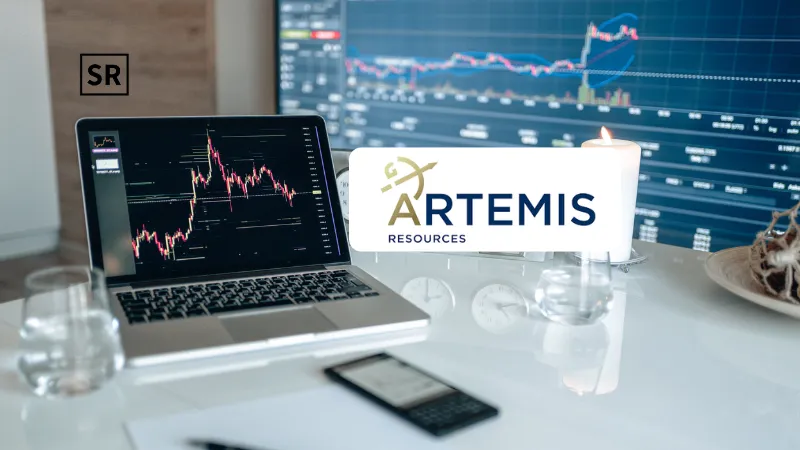What is a Donor-Advised Fund (DAF)? How It Works, Fund Amounts, Sponsors, Apply, Advantages, and Disadvantages
Jul 8, 2025 | By Kailee Rainse

A Donor-Advised Fund (DAF) is a charitable giving vehicle that allows individuals, families, or organizations to donate assets to a public charity and receive an immediate tax deduction. The donated funds are then managed and invested by the sponsoring organization, and donors can recommend grants to their favorite nonprofit organizations over time.
SUMMARY
- Donor-advised funds collect donations from many people and make giving to charity easier for everyone. You can start giving with as little as $5,000.
- Donor-advised funds also accept gifts that are not cash, like stocks, mutual funds, and bonds. They can even take more complex assets, like private company stocks. Ask ChatGPT
DAFs offer flexibility, simplified record-keeping, and the ability to grow donated assets tax-free before distribution. They are a popular choice for those who want to support multiple causes while streamlining their charitable giving.
What Is a Donor-Advised Fund?
A Donor-Advised Fund (DAF) is a simple way to give money to charity over time. You put money into a special account, get a tax break right away, and then decide later which charities you want to support. The money can be invested and grow while you decide.
DAFs are managed by charities or financial companies, and they make it easy to plan and manage your giving. They can also bring people together when many donors contribute to the same fund, their combined support can make a bigger difference for important causes.
RECOMMENDED FOR YOU
How a Donor-Advised Fund Works
Donor-advised funds (DAFs) are becoming more popular because they make giving to charity easier while still letting donors stay involved in choosing where their money goes. Compared to private foundations, DAFs offer bigger tax benefits donors can deduct up to 60% of their income for cash donations and up to 30% for gifts like stocks. People can donate cash, stock, or other assets. If they give things like business interests, they can avoid paying capital gains tax and still get a full tax deduction based on the current value.
A Donor-Advised Fund (DAF) is a simple way to manage your charitable giving:
- Donate – You add money or assets like cash, stocks, or property to the fund. You get a tax break right away.
- Grow – The money in the fund can be invested, giving it a chance to grow without being taxed.
- Give – You can choose which charities to support at any time. There’s no rush you can give right away or wait.
- Easy to Manage – A charity or financial company takes care of all the paperwork, so it’s easy for you to handle.
DAF Fund Amount 2025
The total amount of money in Donor-Advised Funds (DAFs) in 2025 is not fixed it keeps changing and growing. In 2025, DAFs hold more than $230 billion in charitable assets, making them the fastest-growing way to give to charity in the US. The size of individual DAF accounts varies a lot, but the average (median) balance is about $23,534, and it grows by around 10% each year.
Read Also - What Are Alternative Investments, Types, Invest, Advantages and Disadvantages
Donor-Advised-Fund Sponsors
The main types of Donor-Advised Fund (DAF) sponsors:
- Community Foundations
Local or regional nonprofits that manage DAFs to support community needs and causes. - Single-Issue or Faith-Based Organizations
Charities focused on specific causes or religious groups that offer DAFs to their supporters. - Financial Institutions and Commercial Sponsors
Banks, investment firms, or financial service companies that provide DAF accounts as part of their charitable giving services. - Charitable Trusts or Nonprofit Organizations
Larger nonprofits that sponsor DAFs to help donors support their mission or related causes.
Apply for DAF Fund
Applying for a Donor-Advised Fund (DAF):
- Choose a DAF Sponsor
Pick a trusted organization that offers DAF accounts. Popular ones include Fidelity Charitable, Schwab Charitable, Vanguard Charitable or a local community foundation. - Fill Out the Application
Go to the sponsor’s website and complete their online application form. You’ll provide some basic info like your name, contact details, and how you want to fund your account. - Make Your Initial Donation
Transfer cash, stocks, or other assets to fund your DAF. The minimum amount depends on the sponsor (some start as low as $5, others might require $5,000 or more). - Set Up Your Account
Once your donation is accepted, your DAF account is created. You’ll get access to an online dashboard to manage your fund. - Start Giving
You can recommend grants to your favorite charities anytime through your online account or by contacting your sponsor.
Advantages of Donor-Advised Funds
- Easy to Use: Setting up and managing a DAF is simple, with the sponsor handling paperwork and investments.
- Immediate Tax Benefits: You get a tax deduction as soon as you donate to the fund, even if you give to charities later.
- Flexible Giving: You can support multiple charities and decide when and how much to give over time.
- Investment Growth: Donations can be invested and grow tax-free before you grant them to charities.
- Privacy: You can give anonymously if you want.
Disadvantages of Donor-Advised Funds
- No Direct Control: Once you donate, the sponsoring organization legally owns the money, so you can only recommend how it’s used.
- Fees: Some DAF sponsors charge fees for managing the funds, which can reduce the amount available for charity.
- No Personal Use: Funds can only be used for charitable purposes, not for personal benefit.
- Possible Delay: Sometimes donors keep money in DAFs for a long time without giving it to charities, delaying the impact of their donations.
Conclusion
Donor-Advised Funds (DAFs) are a simple and flexible way to support the causes you care about. They let you make a tax-deductible donation right away, invest your gift to grow over time, and choose when and how to give to charities. With easy management and the ability to support multiple nonprofits, DAFs make charitable giving more accessible and efficient. However, it’s important to understand fees and that you don’t have direct control over the funds once donated. Overall, DAFs are a powerful tool for smart, long-term philanthropy.


 Follow us
Follow us Follow us
Follow us















